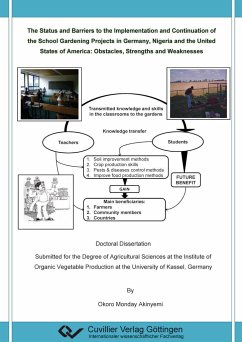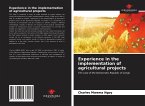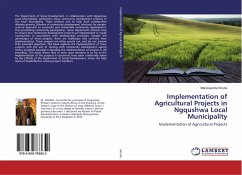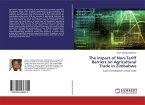Several studies have shown that educational attainment has reached a historically high level with nearly one in six rural adults holding a degree in a specific domain and three out of four have completed high school. However, in some developing countries where emphasis has not been seriously placed on education for all, the number lags way behind. As the demand for food is increasing, people with agricultural knowledge are required to produce food to meet the growing demand. But the trend in agriculture has not been able to achieve this goal despite the level of school completers in both developed and developing countries. To address this trend, this study assessed the status of school gardening instruction, compared and contrast students¿ and teachers¿ perceptions on school gardening projects and evaluated the level of teaching in the field of agriculture. This study evaluated factors influencing student and teacher interactions in regards to gardening and identifies the potential solutions that could be used to promote and increase the effectiveness of gardening projects. The potential roles of parents, community members, government and state agencies in the further development of school gardening programs were also evaluated. The data was collected from teachers and students in middle and high schools in Germany, Nigeria and U.S. The primary method of data collection involved the use of questionnaires which were distributed to 300 students and 33 teachers in the three countries; 100 students and 11 teachers were selected from each country. The data were analyzed using quantitative methods. The results of this study identified teachers and school principals as the primary instruments of school gardening success. To increase the promotion, implementation and success of school gardening programs, principals and teachers should identify areas of need for their particular school related to gardening and make improvements to effect positive changes. Also parents, community members, government and state agencies should express commitment to the school¿s role in order to set realistic objectives for successful school gardening project.
Hinweis: Dieser Artikel kann nur an eine deutsche Lieferadresse ausgeliefert werden.
Hinweis: Dieser Artikel kann nur an eine deutsche Lieferadresse ausgeliefert werden.








